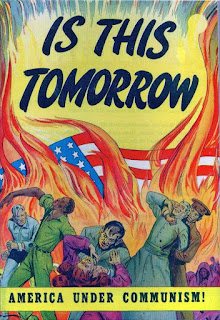Concept + Commentary | Go Tell It On The Mountain |
Halo~
People, in this novel, are good and evil. Religion is neither good nor evil but serves varying purposes depending on the characters we choose to look at. Religion is clearly a central element of the novel and has an immense impact on the story and it’s characters. Yet there seem to m=be many elements a part of this intriguing novel, which raises many questions as to whether Baldwin wrote this book to be a commentary of religious conversion? An analysis of a father-son conflict? Or as an indictment of a racist society?
First and most important in John's life and in the novel is his relationship with his father, Gabriel, who appears to harbor some sort of hostility toward John. The reasons for Gabriel's hostility have little or nothing to do with John; rather they are prejudices based on Gabriel's own past experiences and regrets that he projects onto John. Finally, although John does not know it, (*spoiler alert*) Gabriel is not his biological father. John does what he can to avoid what he perceives as his father's tyranny, and, when he realizes that his father will never be able to control him completely because he is reputed to have a good mind, John happily rationalizes that his intellect will someday lead him from his father's house. John is also bewildered by his lack of understanding of the biological (especially sexual) changes that are happening to him.
At this point in John's life, he does not endorse Gabriel's thinking related to matters of race, but the reader knows that John has many more years to accumulate knowledge based on experience before he will be in the position intellectually to challenge Gabriel's racial experiences, attitudes, and conclusions. Regretfully, however, there are already a few brief, but troubling and foreboding, references to John's unfortunate belief in the possibility that his own racial heritage is somehow inferior to that of whites. Nevertheless, at this juncture in his life, his overall attitudes toward race are much more optimistic if not more positive than Gabriel's.
There is an indictment of a racist society, in the novel it describes Elizabeth’s (John’s mother) story and of his father. As Richard had been accused of stealing because of his race and went sent to jail, eventually he was able to get out with the help of Elizabeth but the psychology trauma from the experience was stronger than their love. Unfortunately Richard (*spoiler alert*) committed suicide. Gabriel understood the concept of slavery because his mother was a slave who was released during the abolishment of slavery and he and his sister Florence weren’t ever able to meet any of their other siblings.
Ultimately, in my opinion, this novel was a commentary upon religion conversion. This story was written in a biblical style, as a novel about religious conversion there is an importance in the church and this church acts as an anchor for its members and promises them the riches of heaven when their poverty-filled lives end. It provides a community in which people can find support and guidance and share their trouble and their happiness with like-minded people. Moral guidelines are established and members are expected to live by them. In this way, it teaches its members the group morality and discourages destructive behavior. Although attending church fills them with a feeling of moral supremacy. At times it seems as though there is a contest to see who is the most holy and the most faithful in the church. Sister McCandles says of John, "This boy going to make it to the Kingdom before any of them," as if salvation is some kind of footrace where the winner gets a little trophy at the end. An example of how the church and Christianity aren’t perfect there is John’s father who is a preacher and very dedicated to his religious duty. Gabriel is not the model Christian either. He is a violent man who beats his wife and children. He has had an adulterous affair and has stolen money from his wife to keep a liaison a secret. He is also a hypocrite. He has dismissed his own affair with Ester as forgiven but refuses to allow Elizabeth the same courtesy. It is not surprising that the young John feels some ambivalence toward the church when the reality of the institution varies so widely from the ideal.
Thank for reading >< Always Aya
728 words

Comments
Post a Comment